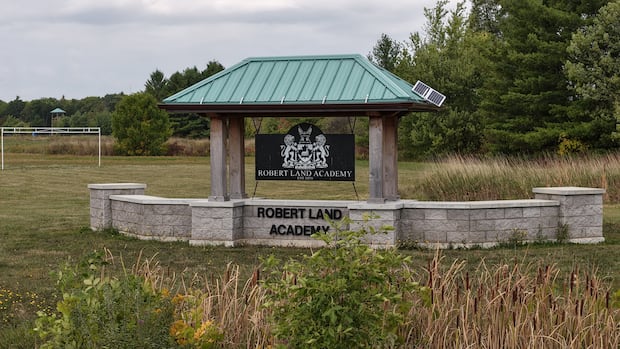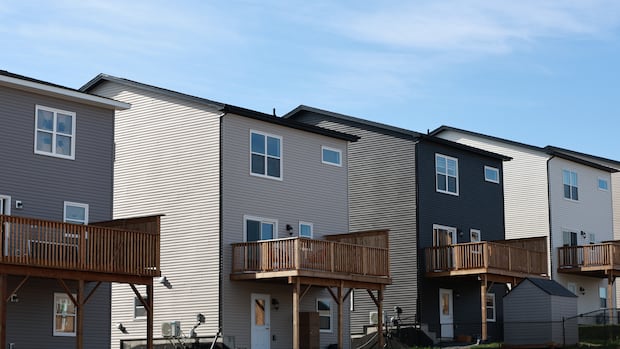Brian Jenkins is among the protesters who must continue keeping their distance from Quebec’s abortion clinics, after the province’s Superior Court upheld a law requiring a 50-metre buffer zone
It’s a blow to the vice-president of the Quebec Life Coalition (QLC). The organization with a mission of “building a Christian society” challenged a 2016 provincial law preventing groups from protesting within 50 metres of an abortion clinic.
It argued that the law infringed upon its civil liberties, including freedom of expression and the right to gather.
On Monday, a Quebec Superior Court judge said although an infringement of the rights of QLC and its members has been demonstrated, “protecting the rights to dignity and privacy in access to medical services” warranted the need for the boundary.
In her judgment, Justice Lysane Cree said the law ensures the safe provision of health and social services to users.
“Evidence shows that a buffer zone is necessary around clinics to ensure privacy in a medical setting and the safety of all those who work or receive care,” read the judgment.
“The risks associated with not having a buffer zone outside clinics have been amply demonstrated.”
The Quebec Life Coalition, an anti-abortion group, challenged the 2016 law, arguing that it restricts free speech. The Quebec Superior Court decision found that the law does in fact limit freedom of speech, but that limitation is reasonable.
The judgment outlined how the group members positioned themselves as “sidewalk counsellors” and would hold up signs with photos of a fetus or messages such as, “Pregnant and scared? …. We can help you,” or “Pray for the end of abortion.”
Advocates for women’s reproductive health say the judge’s decision prioritizes health care and access. Jenkins calls it “a blow for women’s rights. Rights to be informed.”
Protesters create shame and fear, advocate says
Jenkins protests daily in Montreal and tries to speak to women entering facilities to dissuade them from terminating their pregnancy.
Forced to stand away from clinics means protesters are “out of the picture,” he said.
“I can’t see how harassment fits into the picture,” he said. “We want to be supportive. We want to be helpful.”
He says he “can’t control the reactions of people” who might feel vulnerable or attacked.
“In our society we’re seeing restrictions on freedom of speech and other areas,” he said.
TK Pritchard, executive director of Abortion Care Canada, says using this kind of argument negates responsibility. They say it’s a way to speak or act without consequence.
“You can be 51 metres away from the property and you can still have your signs,” they said. “No one is stopping you from sharing your opinions.”
With abortion already highly stigmatized, Pritchard says this judgment helps prevent more challenges and barriers for patients when they’re on site.
“When there are protesters, when there are folks with signs that talk about abortion as murder … it creates a lot of shame for people and fear,” they said.
Courts weighed both sets of rights, lawyer says
In Canada, although it’s more common to see protests against campaigns organized by anti-abortion groups, Pritchard says the climate in the U.S. influences abortion care here.
This raises an interesting question around the contagion effect, said Pearl Eliadis, associate professor at the Max Bell School of Public Policy who teaches civil liberties at McGill University’s Faculty of Law.
“We’ve started to lose our focus a little bit on women’s reproductive rights and what a massive hit they’ve taken since the Roe v. Wade case was overturned,” she said.
She says she is starting to see “a lot more noise” around restricting women’s access to basic health-care services, particularly in the U.S.
“People can say what they want to say, but that next step, right, when it comes to actually impeding access to health-care services, that takes it to a whole other level,” she said, adding the courts in this case were “quite right to shut it down.”
She says although the courts found that this law was a violation of civil liberties for the QLC, it is a reasonable limit, particularly since it relates to health care access.
“The opening lines of the legislation in question talk about the importance of access,” said Eliadis. “When somebody bars that access, it’s a problem. And so that’s how the courts weigh the two sets of rights.”
Clinique Morgentaler, a centre in Montreal that offers abortion, said in a news release that its staff must be able to go to the clinic without fear.
“We sincerely hope that anti-abortion protesters will respect this ruling, which confirms women’s right and freedom to choose to access abortion clinics without any constraints,” read the statement.
Quebec Justice Minister Simon Jolin-Barrette says women have the right to access services without being intimidated.
“In Quebec, we can have different opinions, we can have our own opinion on the subject, however, it’s a personal choice. We must respect personal choices regarding the medical services we receive,” he said.







